Kid Rock
Park Slope Rock School Paris (PSRS) started as an underground band class appealing to a handful of expat parents with aspiring Joan Jetts and Jimmy Pages running around the house. It has exploded into a raging, seventy-student music program pushing out the next generation of Parisian rockers.
Created in 2008 by then Brooklyn-based American musician Jason Domnarski, PSRS set up in Paris in 2012 (Jason will tell you the story below) and instantly stood out by going against the traditional grain of a music school. To sign up, students don’t need to own their own instrument, they don’t need any previous musical experience, they don’t need a notebook to fill with scales and measures, hell they don’t even need to speak French or carry a tune.
They learn to play music by just doing it—together! It’s as much about messing up and getting over inhibitions as it is about learning to listen and collaborate while plugging in and trying out a whole bunch of cool-sounding stuff.
But it’s not just frenetic fun. Like any respectable rock band, it’s all about the show. All semester the kids work with their bandmates and rock teacher to prepare a tight set of cover and original songs for the school’s rock concert at La Bellevilloise.
The concert is a delicious Freaky Friday scene with a sea of parents clutching beers, buying merch, and filming their kid’s act in the darkly-lit venue, while backstage the kids are running around tuning their instruments, fixing their outfits, and getting each other pumped about climbing onstage to deliver the best damn rock performance of their lives.
While there are few seasoned groups with PSRS, at every concert there are a bunch of kids who just a few months before had never picked up an instrument let alone played in a rock group! But there they are rocking, banging, and belting out not only amazing covers by everyone from The Beatles and Led Zeppelin to The Cure and The Black Keys, but their own original rock compositions too. It’s a pretty moving scene, and I’m not even one of the parents!
PSRS’s summer semester concert is coming up this June 21 at La Bellevilloise and anyone can attend. It’s a fabulous way to get a feel for the program, spot some musical celebrities in the audience (last semester a woman with an Hermès bag named after her was there to see her grandson) and renew your faith in France’s rock future.
For more about PSRS, here’s MANNA’s exclusive interview with founder Jason Domnarski.
What motivated you to start PSRS back in New York? What were you doing at the time, what was your inspiration, what was your vision?
I started the Brooklyn school in 2008. At the time, I was working as a musician in New York City (NYC), recording, performing, and touring with bands and my own projects, all the while supplementing my income with odd jobs and restaurant gigs—the full NYC musician experience! A friend of mine was working for an after-school arts organization in Manhattan and they were looking for someone to run a “band” class. I was offered the job, despite having no experience, and found that I really enjoyed teaching music in a band setting. The program was underfunded and I had seven instruments for 18 kids, but I saw the potential. I was living in Park Slope, Brooklyn, at the time and posted a listing on a neighborhood blog, looking for students to start my own program. I picked up five students from the blog post and it has spread through word of mouth ever since.
When did you decide to take the concept internationally and set up in Paris?
Funnily enough, I had no plans to start a program in Paris. It’s all my wife’s fault. Long story short, she and I had met in college in the US and dated for five years. We then split up for six years, during which time she moved to Paris. We got back in touch and started doing the long distance thing for a while, between NYC and Paris, until one of us had to make a move. I was very nervous to leave not only the school but also all of my musical contacts in NYC. But it has all worked out—so far! I still go back to NYC several times a year to teach at PSRS Brooklyn and stay involved with musical projects.
How did you first get the word out about PSRS Paris?
Just like in Brooklyn it all started pretty organically. I arrived in Paris unsure of what I would do. For the first few months I couldn’t really work and didn’t know anyone in the city, so I threw myself into composing and wrote a new album on a crappy little upright piano we rented by the month. At some point we figured we should see if there would be interest in a rock school here in Paris. My wife, Rebecca, emailed all of her friends/contacts, announcing that I was in Paris and interested in starting another rock program in Paris. Amazingly, that email generated 10 students (two bands) and we haven’t looked back since.
Our first clients were mainly expats, colleagues of my wife’s and their friends. Those who were interested proved to be very interested so we asked them to spread the word and help us find more students. And they did. They were awesome. I never really worried if it would work—not because I was confident, but because I had no expectations going into it. If no-one was interested, I would try another angle or do something else entirely. If we found some students, I would focus on providing the best experience for those families and hope they would tell their friends. Luckily, that’s what ended up happening.
The education systems in the United States and France are very different. How have you had to adapt your program and methodology to fit the cultural expectations here?
I think one of the reasons we are successful is precisely because I haven’t drastically changed the program from it’s Brooklyn model, even down to the fact that all classes are conducted in English. When I started PSRS Paris, most of our community was made up of expats since that was where the initial word was spread. But now we have a large and growing group of French families. I get the impression that young families, regardless of nationality, are always on the lookout for alternatives to the status quo and are hungry for new opportunities for their children. Our program fosters confidence, creative expression and risk-taking and our classroom environment is positive, encouraging, and fun. Students get to play together as a rock band from the first day of class—they learn by doing. There’s a place for the type of music education that the conservatoriums provide, but it might not be the best approach for everyone.
There must be be an art to knowing who the best bandmates will be for each kid and on which instrument they’ll thrive. How do you decide which kids go in which bands and what instrument they should play?
Organizing bands is definitely the most challenging part of the job. Band rosters are based on age, instrument, and ability level and we really take the time to find the best fit possible for each student. Regarding instrumentation, many of our students come to us with a desire to play a specific instrument or have experience on an instrument already. But others, mainly the younger students, have never had a chance to try a guitar, or electric bass, or keyboards, and this is an opportunity for them. It’s not feasible for a student to try a different instrument every class since they need to commit to something and start learning the basics, but they do have the opportunity to switch instruments on different songs. A desire to play a specific instrument is paramount. If a child is motivated to learn, our job is easy. But if we’re pushing a guitar into the hands of a student who wants to play keyboards we’re be facing an uphill battle.
Ability levels are always a bit different and our job as teachers is to find ways to work with varying talent or experience in the same group. We need to challenge each student individually but also shape the band as whole so it sounds like a cohesive group. But we have lots of experience and have learned how to work with these challenges. A student who knows a few chords on guitar can easily be in a group with a total beginner, we just adapt the parts to fit the ability level and maybe give the more advanced student a leadership role.
In addition to the musical element, you also need to consider the social aspect of being in a band. How will the students work together creatively? How will they write a song together?

How does a typical band rehearsal unfold? Does everyone come with a riff? Do they have homework? How do you keep the chaos in check?
Chaos can be great! This is rock school! But it’s true that one of the biggest challenges our teachers face is capitalizing on that energy and excitement but controlling it just enough to be able to teach. It’s a full-on experience in that room for 90 minutes—imagine five kids with instruments and amplifiers. I find that patience mixed with lots of coffee and earplugs works well for me.
Our semesters run for 13 weeks, culminating in a big show at La Bellevilloise. Our classes are spent learning classic and modern American/British rock songs and writing an original song. Their homework may be to listen to the song they’re learning and really get it in their heads. Or checking out videos of the band or similar bands. Or learning their specific parts. Pretty cool homework if you ask me! Writing the original song is both the most fun and the most challenging part of the semester. We have lots of experience writing songs with kids and I’m always incredibly proud of the final product. Have a listen for yourself: http://parksloperockschool.bandcamp.com/
What do you hope the kids ultimately learn at PSRS? What are the tangible as well as the intangible goals you’ve set out for them to achieve?
Soon after starting the Brooklyn school in 2008 it became very evident that our program was not just about music. Of course we teach music so we encourage all of our students to develop their skill on their chosen instrument and we give them the materials and direction to do so. But by working within the band context, students become a part of a larger entity and this collective identity has proven to be very effective in teaching life skills in addition to music skills. Collaboration, confidence, risk-taking, constructive criticism—these are all skills that will aid them throughout their life regardless of what they end up doing. This is where our program is special and we’ve seen kids literally transform in our classes. Parents have approached us at our final concert and are completely in shock to see their child singing a Rolling Stones song on stage in front of hundreds of people when just a few months before they were terrified to work with their bandmates in a small group setting. We want all of our students to not only become better musicians but also better people. Even if a student never plays music again after they leave PSRS, we’d see it as a success if they’d learned something about collaborating with their peers in a creative endeavor.

Running a rock school must have its highs and lows. What are your biggest challenges? What makes the work totally worthwhile?
There are a few challenges in running a program like ours, but the highs definitely outweigh the lows. We’ve seen that kids’ schedules here in France can be pretty intense, so just being able to accommodate everyone’s schedule is tough—and good luck getting them to practice during the week at home! What’s funny is that most of the biggest challenges are ones I brought upon myself in how I designed the program. We accept total beginners and are confident that by the end of 13 weeks, they’ll be playing in a band and sounding reasonably good. They may not be playing very difficult things but they’re up and running and making music. Accomplishing this takes lots of energy and patience on the part of the teacher. But we always get there.
One of the other difficulties I’m seeing is how students are learning now. They’ve been called the “YouTube Generation” and there’s no question that YouTube has impacted the way we ALL learn new things, even as adults (all of my bricolage skills, as paltry as they may be, come from YouTube tutorials). Some of our students watch a quick video on how to play a certain riff, run through it a couple of times and say “ok, I know that. On to the next one…” when, really, they’re not learning it. There’s a big difference between memorizing a riff or chord progression and making it musical. Lots of kids want instant gratification and playing rock music in a band can give you that. But getting it to sound really good and understanding arrangement, dynamics, pacing—this takes time and practice.
All these challenges pale in comparison to the sense of accomplishment I feel when I see the students on stage at the Bellevilloise. Those shows are some of my proudest moments and also some of the most fun.
You’ve cultivated an impressive list of famous Paris-based musicians who trust their kids’ rock education to you. What do they find at your school that they don’t find anywhere else?
For one thing, I think they appreciate our positive and encouraging approach to music education. Many of them did not study music formally and started playing as a means of self expression. When you come at it from that approach you have a different relationship to music education. I think PSRS has the same spirit and we encourage creativity in a way that they can appreciate and relate to. Many musicians have told me that they wish something like PSRS had existed when they were their children’s age.
I also think that my experience as a professional musician provides some credibility. Composing, recording, and performing are still a big part of my life and it impacts the pedagogical approach of PSRS.
It must be inspiring to collaborate with these musicians on the Artist’s Series that you’ve launched. What’s that program all about?
It is inspiring, for sure, and to see them work with our students and bring their experience to our community is amazing. I’ve amassed some great contacts, both as a musician and through PSRS, and it seemed natural to get something happening with these people. But I didn’t want to just use their name to promote PSRS. The Artist’s Series was born out of a desire to create unique, collaborative events with known artists that bring together the community and give them a chance to actually work with the artist. The series started with a master class with Christian Mazzalai from PHOENIX, who worked with one of our older bands for an evening, talking about the band’s creative process, showing them specific musical parts on “1901” (which the band was covering) and giving them some input on their own original song. The second event, in March, was a Songwriting Workshop with Jarvis Cocker APC Studios Jarvis gave a short lecture on creativity and lyric writing, followed by a live lyric writing session for an original song with PSRS students and parents, which a student band performed on the spot with Jarvis. France 24 was on hand to catch it all. It was an amazing night!

How have all of these years working with kids impacted the way you think about music as a composer/performer yourself?
With kids you need to keep it simple and focused especially when writing the original song. Straightforward chords, simple melody. What starts as a limitation (a student can only play two chords) can sometimes become an asset and the results are, quite often, excellent, catchy songs. The same ideas apply when I’m working with other artists or composing for my own projects. After many years of doing it, you can get in your own way or feel that things need to be more complicated than they are. Keep it focused and your message will translate much easier.
I love working with kids because they haven’t been jaded by “real life” just yet, like all of us crusty adults. They can write a song about eating breakfast and it’s awesome. Being able to work with this uninhibited creativity is exciting and inspiring.
What are your favorite PSRS band names/song titles of all time?
Oh man. So many. Band names? Shark Bath, Electric Skeletons, Shut Up, The Umbrella Corporation, Moustache Radio…
After seven years and countless bands, we’ve had so many awesome original songs. It’s hard to remember them all and pick a favorite! But a few great ones:
Paris: The Metal Dragons “Cash Money”
https://www.youtube.com/watch?v=0Fkr83Iuc0k
Brooklyn: Headphones For Fish “Social Media Song” https://www.youtube.com/watch?v=rgQhidwH_Ck
Paris: The Leftovers (forgot the name)
https://www.youtube.com/watch?v=zPVgDidxL5s
Have any PSRS alumna launched careers professionally?
Several Brooklyn alumni have gone on to start their own bands and play concerts in NYC. They’ve won Battle of the Bands competitions and recorded albums. But our first students from 2008 are just entering college in September, so we’ll give them some time!
What’s on the horizon for PSRS Paris in 2015/2016 and beyond?
We have several cool things in the works. More Artist’s Series events, additional performance opportunities, recording sessions. And we’re excited to launch our first Adult Program in September! Many of our parents seem to be jealous of seeing their kids on stage and want to give a try themselves—it’s going to be awesome.
Extra info:
Next semester starts in mid-September and will run for 13 weeks, ending in mid-January. We follow all major school holidays.
For information on our program or to enroll your child for next semester, please contact us at paris@psrockschool.com.
Instagram: @parksloperockschool
Twitter: @psrockschool
Facebook: www.facebook.com/ParkSlopeRockSchool
Photos by Marjorie Preval
Jarvis Cocker photos by Saul Aguilar
Want to check these kids out live? This Sunday, June 21, 2015 come watch 14 bands from the spring semester play at La Bellevilloise from 14h-18h (free entry).
La Bellevilloise
19-21 rue Boyer, 75020














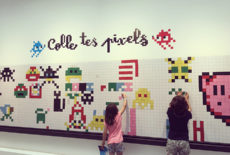
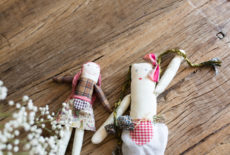
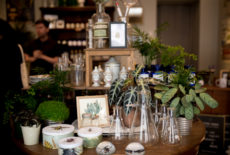
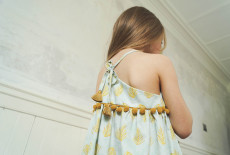
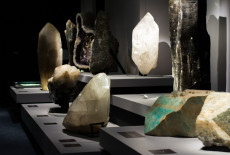
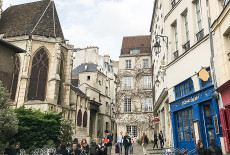







What a talented little bunch of kids!